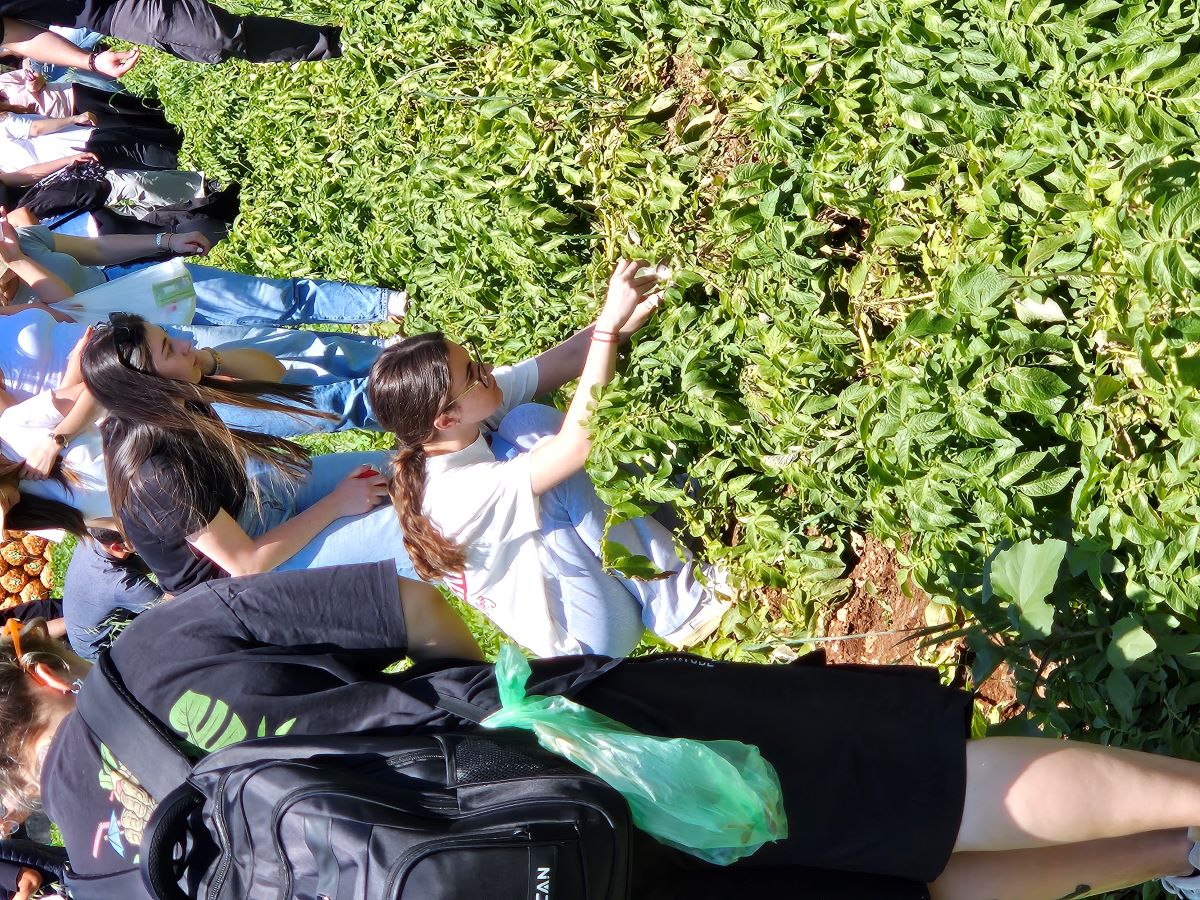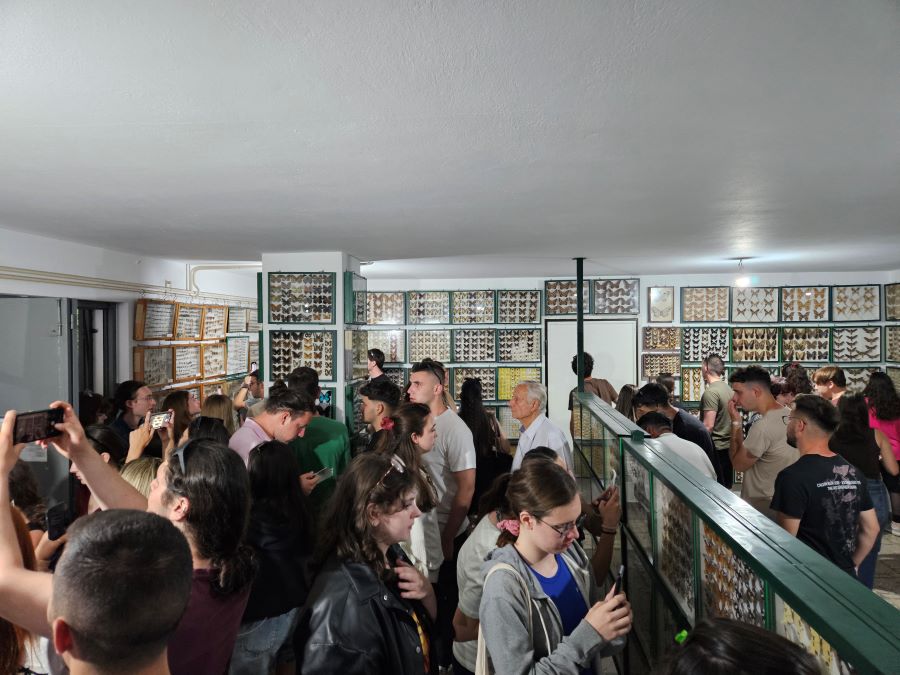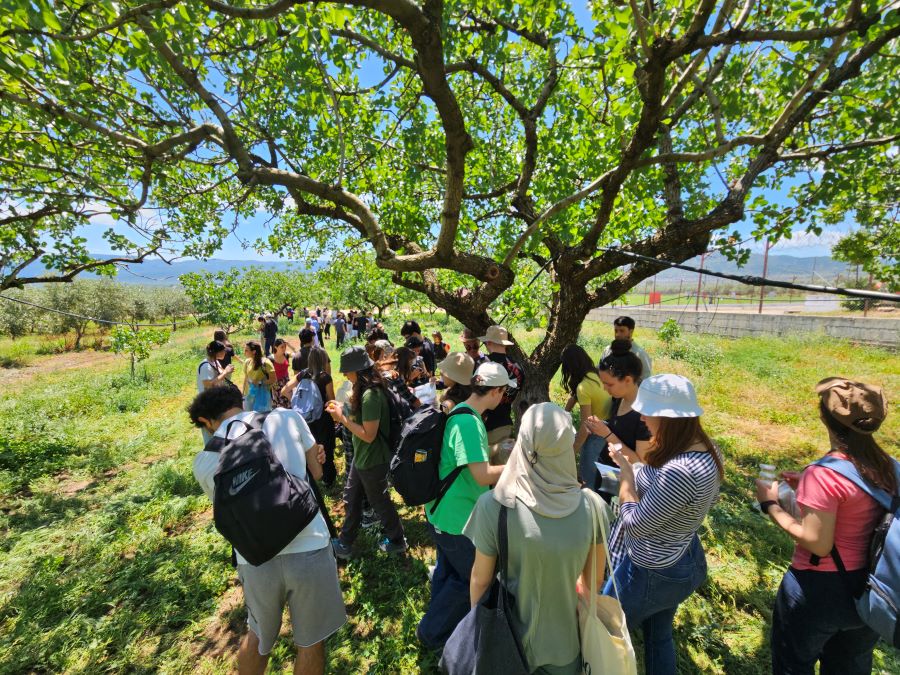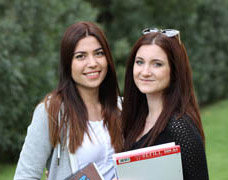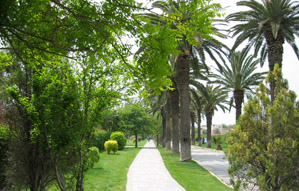Educational Field Trip of the 8th Semester – Department of Crop Science, Agricultural University of Athens
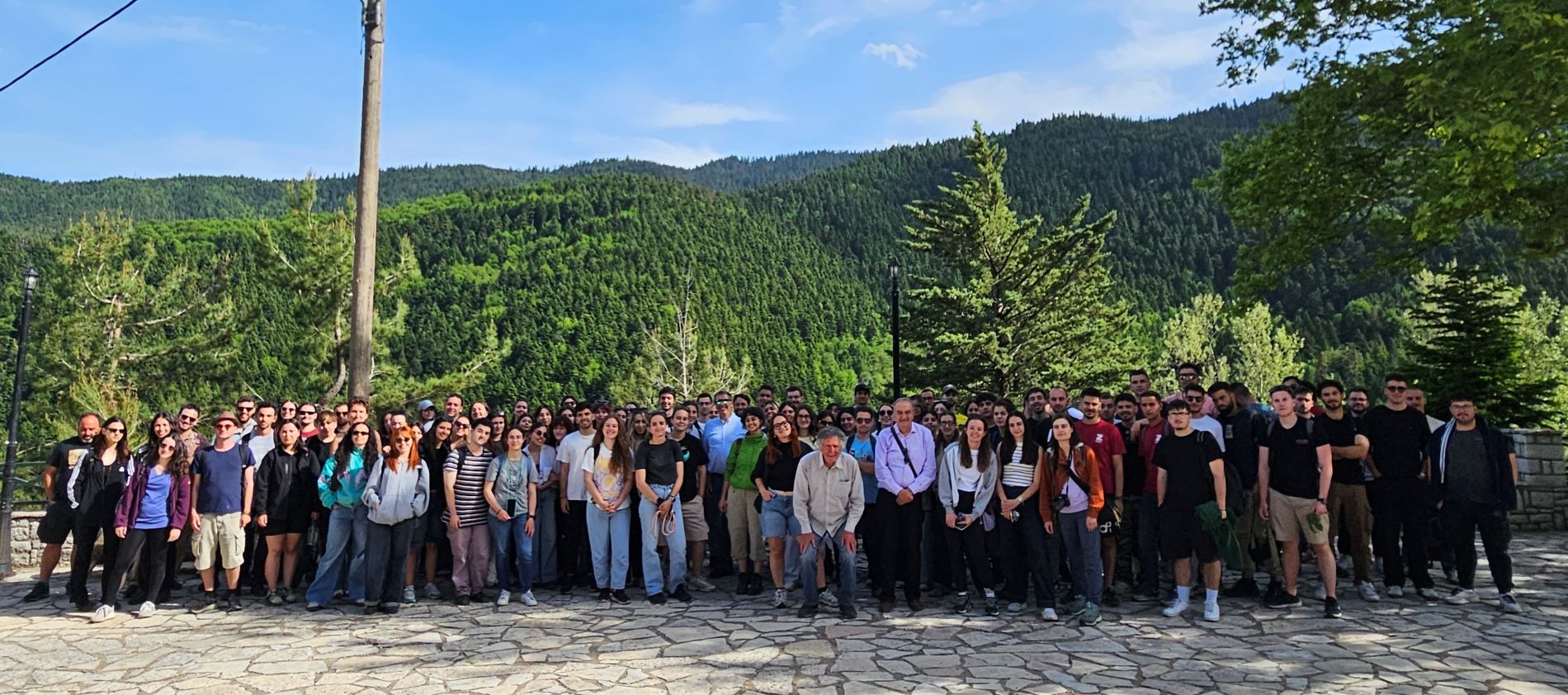
With great success, the annual educational field trip of the 8th-semester students from the Department of Crop Science of the Agricultural University of Athens took place once again this academic year. This longstanding tradition of the Department has been held continuously for over 35 years and includes visits to selected areas in the regional units of Fthiotida, Magnesia, and Karditsa, offering students a unique opportunity to connect theory with real-life agricultural practices.
The four-day field trip aims to familiarize students with key aspects of Crop Science, with particular emphasis on diagnosing plant diseases and insect infestations in cultivated crops, as part of the 8th-semester courses in Entomology and Plant Pathology for fruit trees and vineyards.
Throughout the trip, students participated in scheduled visits to crops such as olive, pistachio, apple, pear, stone fruits, aromatic plants, potato, tomato, and more. Under the guidance of their professors, they searched for symptoms of infestations on leaves, fruit, and branches, practiced sample collection techniques, and applied field diagnosis methods such as branch shaking, insect sampling, and identification of wood-boring insects. They also recognized beneficial insects, including predators and parasitoids, gaining valuable hands-on experience that will support their future careers.
A highlight of the trip was the visit to the Entomological Museum of Volos and the private collection of renowned entomologist Dr. Athanasios Koutroumpas. The students were impressed by the extensive insect collection from around the world, enriching their understanding and enthusiasm for the science of entomology.
The itinerary also included visits to modern agricultural and beekeeping enterprises, where students engaged in fruitful discussions with young entrepreneurs, gaining insight into current challenges and developments in the agricultural sector. In addition, the students explored natural ecosystems, irrigation infrastructure, and experienced rural life and agricultural landscapes firsthand.
Students from the Erasmus program also joined the field trip this year. Their keen interest in the trip's topics and seamless integration with Greek students added a valuable intercultural dimension to the experience.
The trip was marked by the students’ enthusiasm and active participation in identifying and collecting samples, asking questions, and working closely with their instructors:
- Prof. Epameinondas Paplomatas, Chair of the Department
- Prof. Dionysios Perdikis, Director of the Division of Plant Protection and Environment
- Assistant Professor Antonios Tsagkarakis
- Mr. Vasileios Dimitrakas, Laboratory Teaching Staff
We sincerely thank the crop owners and producers for hosting the visits and offering their fields for study, Dr. Koutroumpas for the enriching museum experience, the representatives of agricultural businesses for sharing their expertise, and all participating students for their commitment and collaboration. We are also grateful to the Rectorate of the Agricultural University of Athens for its support and hope for continued reinforcement of such vital initiatives.
Educational field trips are an essential and irreplaceable part of agronomic education. They should be prioritized and evaluated with the weight they deserve, reflecting their significant contribution not only to students’ academic development but also to their understanding of the agricultural landscape and emerging trends in agri-business and innovation.
